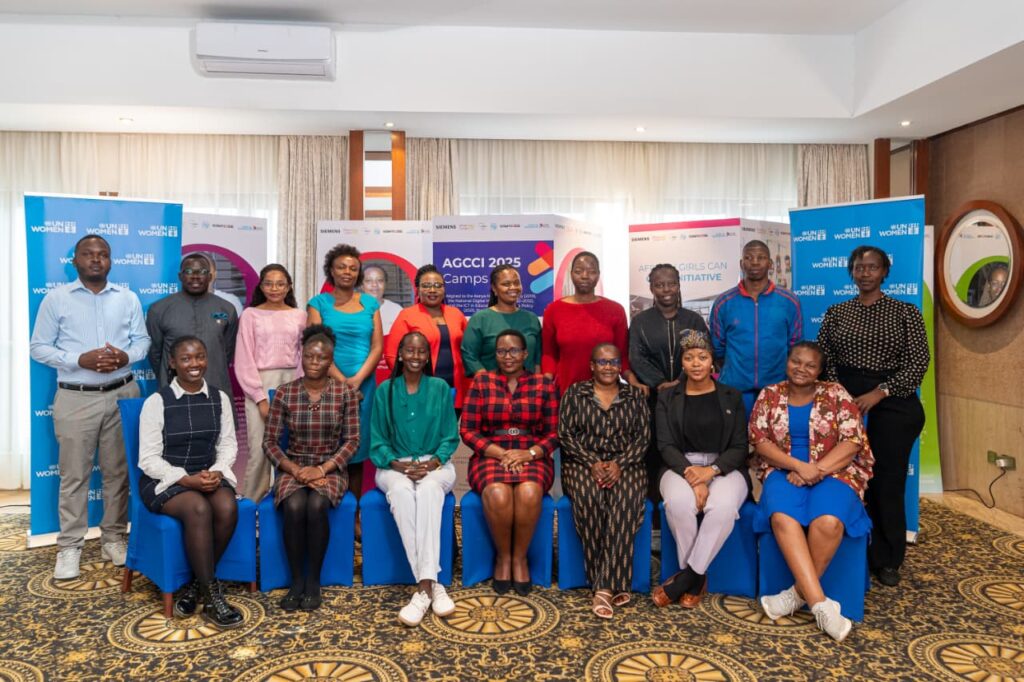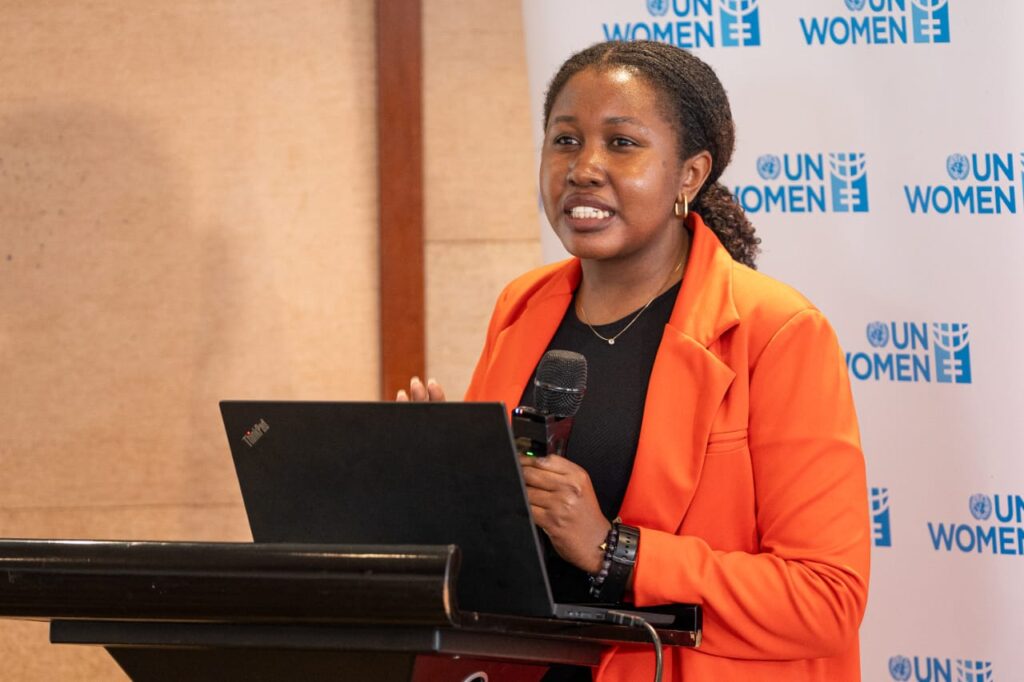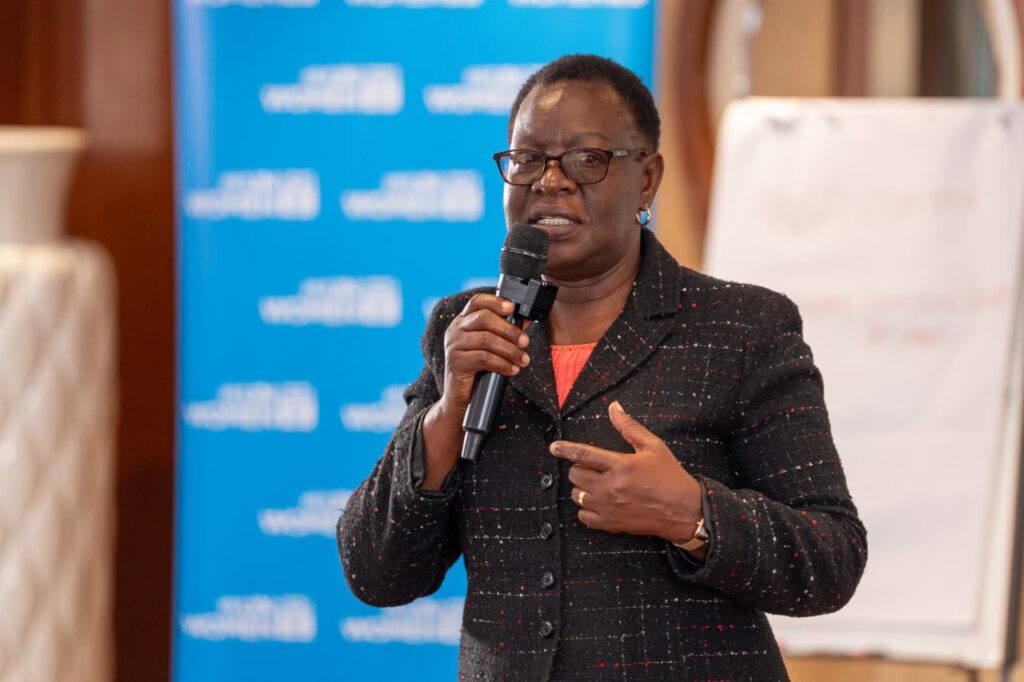By Melisa Mong’ina

Traditionally, women and girls were expected to handle household chores, give birth, and care for their families. In some communities, girls were married off at an early age.
But as the world evolves digitally, UN Women and its partners have recognized the need to empower girls in ICT, equipping them with knowledge and skills that can make them self-sufficient in the digital era.
Jackline Kiambi, Programme Associate at UN Women Kenya, outlined the structure and impact of the African Girls Can Code Initiative (AGCCI). The program includes coding camps, policy engagement, and partnerships to ensure more girls access ICT skills. She noted that young people in other countries are already building apps and websites at early ages, stressing that Kenya must move in the same direction.

“When you look at the coding camps, we target young girls between 17 and 25 years. They are trained in basic coding, robotics, cybersecurity, and generative AI. We are also working with the Ministry of Gender, Education, and ICT to see how ICT can be mainstream into the school curriculum,” she said.
Kiambi highlighted the importance of connecting young girls with role models in the ICT sector to expose them to diverse skills, knowledge, and global perspectives.
“We are engaging role models such as women in the ICT space, from major companies like Meta, Microsoft, Google, and Safaricom, as well as startups. We are also working with female teachers in schools to inspire young girls to engage in ICT,” she explained.
She emphasized that learning does not stop with gaining new skills, instead, participants are encouraged to apply their knowledge practically.
“We collaborate with innovation hubs in Kenya where these girls can scale their ideas, make them market-ready, and pitch to potential investors. We also partner with tech institutions to offer advanced coding classes,” Kiambi said.
She further introduced Digiken, a 36-month joint program with United Nations Educational, Scientific and Cultural Organization (UNESCO), United Nations Capital Development Fund (UNCDF), and United Nations Environment Programme (UNEP), which aims to create a more inclusive digital ecosystem.
“It’s going to utilize digital platforms to tackle local challenges, empower women and girls in digital entrepreneurship, foster AI-driven solutions, and make the digital ecosystem inclusive in general,” she said.
According to Kiambi, the initiative prioritizes vulnerable groups such as women and girls, persons with disabilities, and communities in ASAL (Arid and Semi-Arid Lands) counties. She urged collective support for women excelling in tech and called for reporting on the digital divide through a gender lens.
“When you dig deeper, you will see that most women and girls, especially in rural areas, have no access to the internet. Let’s engage their voices and tell their stories, not just those of experts,” she urged.

Elizabeth Obanda, UN Women Kenya Team Leader and Women Economic Empowerment Unit, explained that the organization’s primary focus is on gender equality and women’s empowerment.
She said UN Women works in areas such as leadership, ending gender-based violence, and peace processes. Obanda underscored the importance of ensuring women can support themselves and their families, especially in the digital age.
“Most young people spend their time on phones and laptops making money. We want to know how we can facilitate them not only to have the skills but also to communicate effectively in order to influence government priorities, private sector priorities, and personal attitudes,” she said.
She added that the African Girls Can Code Initiative has trained 213 girls in Kenya, producing strong results with participants advancing in fields like cybersecurity and even traveling abroad for opportunities.
“We’ve been lucky. Our girls are doing very well. Some of them went to Germany last year, and others will be going this year, and some are in cybersecurity. We want more girls in the digital space,” she said.
Obanda also urged the media to avoid stereotypes in reporting that limit women’s participation.
“For us, it’s very important that we engage with the media, because it must convey the right messages about the digital economy,” she added.
